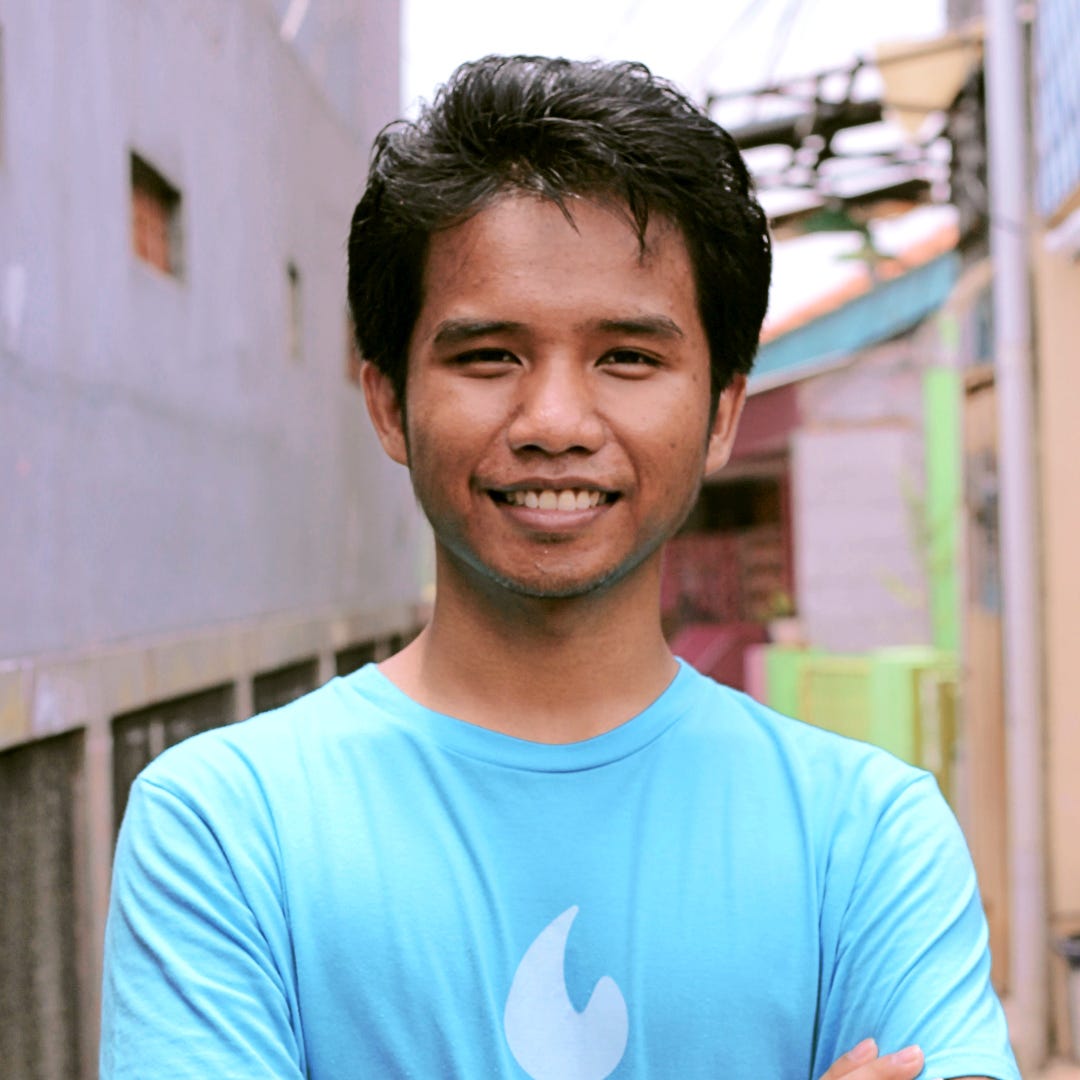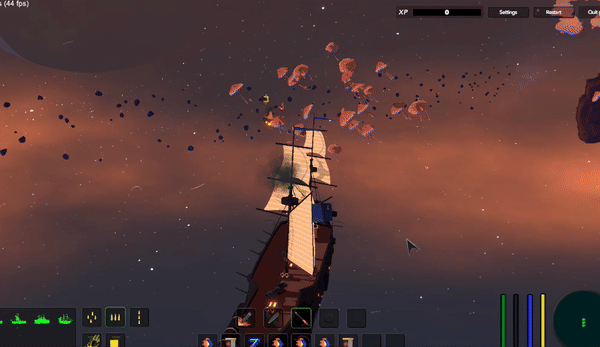Blending Philosophy and Startups: Interview with Tri Ahmad Irfan
An Interview with Tri Ahmad Irfan, the Mind Behind The Stoic CTO, Tazker AI, Lumina, and much more

Welcome to the AIModels.fyi interview series, where I bring you insights from the brains behind the most innovative AI projects.
Today, I'm thrilled to be interviewing Tri Ahmad Irfan, the Founder and CTO of Tazker AI and Lumina. You may know him as @irfan3 on social media, and he's made quite a name for himself in the world of startups, engineering, and AI. With an impressive background that includes being part of Y Combinator's W22 batch and being recognized as a Forbes 30 Under 30 honoree, Tri brings a wealth of knowledge and experience to the table.
In this interview, I have the privilege of diving into Tri's incredible journey and gaining insights from his unique perspectives on startup culture, engineering practices, and the exciting potential of AI. Join me as I explore Tri's thoughts and experiences, and discover the valuable lessons he has learned along the way. Let's jump right in!
Tri, you're the mind behind The Stoic CTO substack—a blend of reflection, note dumps, and stoic philosophy. What sparked your interest in stoicism, and how does it influence your approach to startups and engineering?
I have been interested in philosophy since I was in high school. However, when I studied deeper I found very few practical applications to my life. Of course, there are a lot of philosophical problems that I can spend my time on, but they rarely will help me in a useful way. This is especially the case in Western philosophy.
This is different from Eastern philosophy, where you get more practical ideas and life wisdom. And then I discovered the writings of authors like Epictetus, Seneca, and Marcus Aurelius. They are Western thinkers and philosophers, but they offer a lot of insights into how to conduct our daily lives, how we should interact with others, and how to handle adversities.
It has influenced me a lot not only in life but also in startups and engineering. In startups, which are full of uncertainties, Stoic philosophies come in really handy. Okay, an investor just rejected you, take a deep breath then move on. So now the economic downturn happens, it’s fine, focus on things you can control. And countless unexpected misfortune will surely happen, Amor Fati.
Even in engineering, a field where it's supposed to be fully deterministic, sometimes unexpected incidents and chaos will happen. Of course, computers are deterministic, but the humans using them are not and our thinking is also not. Knowing that there is a lot of non-determinism in engineering has helped me a lot in untangling and navigating issues. It allows me to focus on redirecting my attention to where the problem may be.
Tell me about Tazker. How does that relate to your other projects?
Tazker was built as an extension of Lumina. Since launching Lumina a year ago, we have gotten more than 1.5 million workers based in Indonesia. And virtually in any job platform, there are more people applying for jobs than there are jobs available. So naturally not everyone will get a job on time.
And interestingly, most job seekers are open to freelancing or part-time opportunities while they are waiting for jobs. A lot of them are happy to be taskers under our management.
And on the other side, companies are hiring more globally to diversify their talents and they want to cut costs by outsourcing.
This is a perfect match. Our taskers can get a decent income, and companies get a managed and reliable team with Tazker.
Lumina's growth to 1.5 million users in such a short time is remarkable! Can you share one key decision or strategy that contributed to this rapid success?
Honestly, I would attribute a big chunk of our growth to perfect timing. When we launched our product, the economy in Southeast Asia just began to recover from covid. Businesses are reopening and they need workers fast. And previously laid-off workers are eager to join the workforce again. Even before we have any product, we have a lot of incoming demand already.
Beyond that, we also capitalize on good content marketing. We created highly engaging content that workers could relate to emotionally. Some of our early viral content poked into their emotions. For example, we published touching stories of hardships, getting a job after a long break, and how a worker became so dedicated to his work to provide care for his aging mother. Creating highly emotional and personal content is a good way to stand out among AI-generated and synthetic copycats currently flooding the internet.
Building high-performing tech teams is an art. As a former VP of Engineering at GudangAda, what's your top advice for cultivating a culture of innovation and excellence within an engineering team?
Re-think everything for first principles. Given the antiquated industry that our company operated in, which is logistics and commerce, there are existing unchecked know-hows. Sometimes products and processes are done in a certain way not because they are efficient, but because no one bats an eye to re-think them. We need to stress test every existing product and process we have, and if they are not up to the challenge we will be facing, we should innovate.
Another tip: always be open to experimenting and don't be afraid to make mistakes. In most teams that I managed, we usually work in a short one-week sprint. Why so short? Because we want to make sure that every week we are experimenting with something new. And if it doesn't work out, we would know within a week, not months.
Your journey with STOQO saw the engineering team scale from 1 to 40. What was the most valuable lesson you learned from this experience, and how has it shaped your leadership at Lumina?
I was the first full-time engineer and was practically wearing multiple hats for the first few years. Back then I was pretty inexperienced, so I learned a lot by trial and error. To fasten my growth in leadership and in building teams, I read a lot of books on culture. The Culture Code by Daniel Coyle and What You Do is Who You Are by Ben Horowitz are two books that influenced me the most during this time.
From that point on, I am a big believer in how important culture and mission are. When you are working on a hard problem, it is important to hire people who actually care. Because they will go beyond what a normal team member would. And it goes both ways. I always strive to provide as much value as possible to my team members, be it in the form of coaching, career support, or helping them in any way.
Akselito aims to help students and fresh graduates build fulfilling careers. Can you tell us about the "aha" moment that led to the creation of this coaching platform?
I love teaching. And I have been teaching since I was in high school and in college. Mostly I taught algorithms and competitive programming. After graduating, I continued to do mentorships for students and young professionals who want to get started in tech or who want to work in Silicon Valley.
Teaching and mentoring are acts of kindness. And Akselito is a productization of that. We recruited mentors and people who are eager to give back and give them the opportunity to help others even in a small way such as reviewing resumes, doing mock interviews, and advising students. What I did is building a platform I wish had existed when I started my career.
Your love for philosophy and reading classics is intriguing. Which philosophical work has had the most profound impact on your life and why?
Not really a classic but I loved reading Siddharta by Herman Hesse. I also love works by Sufi authors. There's this rather obscure book titled The Conference of the Birds by a 12th-century Persian poet Attar of Nishapur. It narrates the story of the birds of the worlds trying to decide who would be their sovereign. They then need to cross seven valleys in order to reach the nest of their future king. Each valley represents obstacles that would prevent them from attaining enlightenment.
This book triggered a lot of memory and imagination in me and heightens my curiosity about philosophy.
You've been a part of Twitter, recognized in Forbes 30 Under 30, and you actively tweet about AI. What excites you the most about the future of AI, and how do you see it shaping the startup ecosystem?
Wow, this is literally what I am thinking every day. In the near term, I would worry about how it could create inequalities in the workforce. Entry-level white-collar workers might be wiped off the market if re-skilling and re-training are not happening.
At Lumina, we connect our workers not only with job opportunities but also with trainings and career support as well. I think this is very important to make sure that the rise of AI doesn’t make the world a more unequal place.
In the medium-long term, given that re-training and more critical education are happening, it would be a net positive force multiplier for the world's economic productivity. I foresee that AI will be in everyone's pocket, both for work and for life. Just like everyone now has a computing device in their pocket, everyone would have a personal thinking assistant. A lot of my ideas and areas that I observe are based on this thesis.
Even with Tazker, we equip our taskers with the latest AI tools so that they can have higher productivity. We strive not to replace human workers, but to augment their capability.
Finally, Tri, you've made a significant impact as a tech entrepreneur. What's the one piece of advice you'd give to someone just starting their entrepreneurial journey?
To quote Naval, "Be impatient with actions, and be patient with results". Entrepreneurship is hard and takes patience. Always have a bias for actions. I always remind myself of this every day 🙂
Conclusion
That wraps up our interview with Tri, the mind behind The Stoic CTO! It was a pleasure to learn about Tri's journey, his insights on stoicism, and how it influences his approach to startups and engineering. Whether you're a philosophy enthusiast or an entrepreneur seeking practical wisdom, be sure to follow The Stoic CTO for valuable reflections and stoic philosophies.
Thank you for joining us, and until next time, stay resilient and keep pursuing wisdom in your entrepreneurial endeavors!
Subscribe or follow me on Twitter for more content like this!




Comments ()